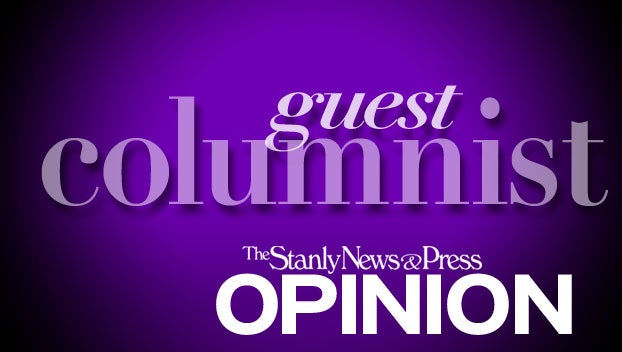DG MARTIN COLUMN: Opposing sales of college athletes’ images: Racism?
Published 10:41 am Wednesday, July 15, 2020
|
Getting your Trinity Audio player ready...
|
Do college sports programs represent a racist oppression of black student athletes?
And is it racist of me to believe it would be a mistake to allow collegiate

D.G. Martin
athletes to sell rights to their images?
Two people I admire say yes to both questions.
John Shoop and Marcia Mount Shoop are powerful advocates for fair and respectful treatment of black college athletes.
John was a football coach for the Carolina Panthers, UNC-Chapel Hill and other college programs. While John was at Chapel Hill, I admired his inventive and risky play calling at Tar Heel football games.
His wife, Marcia is a respected Presbyterian preacher in Asheville.
Both are strong advocates for black student athletes.
Marcia’s hard-hitting preaching is always moving and provocative.
Even more than their inspirational work on the field and in the pulpit has been their caring friendship and mentoring of many black athletes that John coached.
Nevertheless, I take issue with their views as they expressed them in a recent column in The Raleigh’s News and Observer.
In part, this is what they wrote:
“The place where white supremacy culture and racism are the most evident in our institutions of higher learning is in athletic departments at schools like UNC-Chapel Hill, where the majority of revenue generating athletes are black. Those same athletes are generating profit for everyone else in the system except themselves. Not allowing them to benefit from their athletic capital at what will prove to be the peak of their market value for most collegiate athletes is the opposite of anti-racist. It is a tool deployed to keep white wealth and power concentrated where it has been in America since enslaved people built the economy that created this country’s wealth.”
The Shoops aimed their criticism at UNC-Chapel Hill athletic director Bubba Cunningham, who, like many other college athletic administrators, opposes proposals to allow college athletes to be compensated for use of their name, image, or likeness (NIL).
Jay Bilas, a basketball analyst and former Duke basketball player, agrees with the Shoops. Commenting on a proposed NCAA change that would allow such compensation, he recently wrote, “The ability of every person in the college space to profit off their NIL is a right that is not restricted in any way, with the exception of the collegiate athlete.”
On the other hand, Cunningham is concerned that college athletes would be professionals if they are allowed to sell their NIL. In a letter to the NCAA, he urged it not “to abandon a model that has provided educational and athletic opportunities for hundreds of thousands of student-athletes.”
Maybe it is too late to worry. College sports are already so gorged with money that a little bit more directed at a limited number of star players may not lead to any noticeable further corruption.
But when I played college basketball 60 years ago, the best part of the experience was the camaraderie with my teammates. Those of us who were not so good made just as little money as the great players — a few dollars for meals on the road.
If players are allowed to sell their NILs, they will have to get help from agents or business advisors, who will open doors to time-consuming and borderline opportunities that take time and involve risk.
Colleges in the big cities or those with rich alumni supporters will turn those assets into guarantees of large NIL contracts for their recruits.
Paying some, but not all, college players takes away the core of an equal and special experience for the large majority of college athletes who are not big-time stars.
Maybe this change would be just one more step towards full professionalization of college programs. Maybe it’s too late to stop the trend.
I respect the Shoops, and, while I agree that racism affects many of our decisions, I do not think that opposition to NIL payments for college athletes is racist and I still oppose the change.
D.G. Martin hosts “North Carolina Bookwatch,” Sunday 3:30 p.m. and Tuesday at 5 p.m. on UNC-TV. The program also airs on the North Carolina Channel Tuesday at 8 p.m. and other times.



